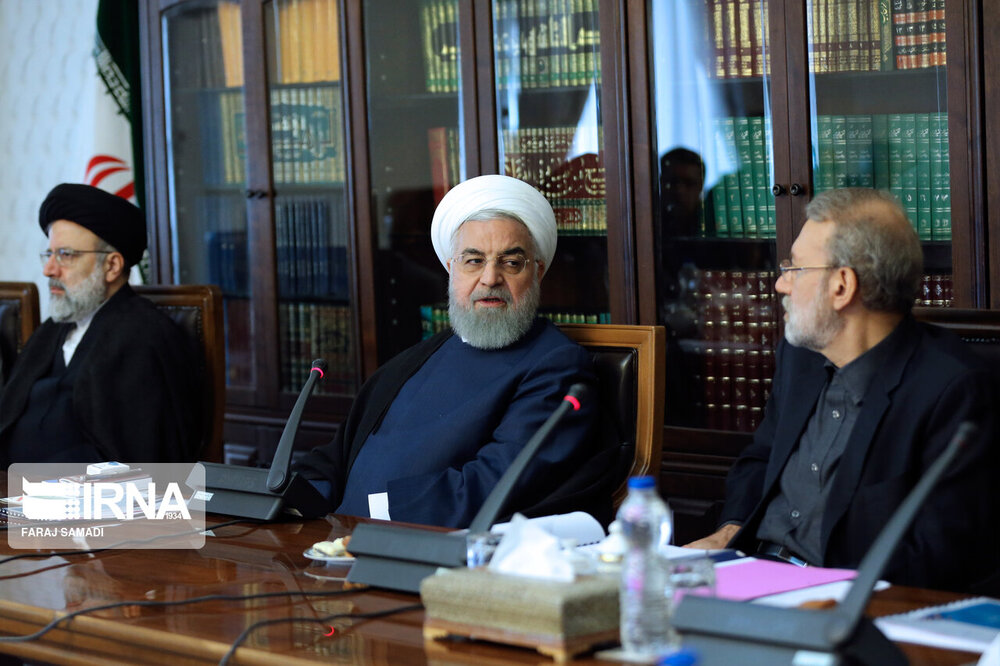Revenues from fuel price rise should be given to low-income people: Rouhani

TEHRAN – President Hassan Rouhani said on Saturday that revenues of a planned increase in fuel prices should be given to low-income people and those with fixed income.
“Revenues of increase in fuel price should be given to low-income people to make up for reduction in their purchasing power because of fluctuations in inflation,” he said during a session of the Supreme Council of Economic Coordination.
Rouhani, Majlis Speaker Ali Larijani and Judiciary Chief Hojjatoleslam Ebrahim Raeisi attended the session.
First Vice President Es’haq Jahangiri; Presidential Chief of Staff Mahmoud Vaezi; Vice President for Economic Affairs Mohammad Nahavandian; Economy Minister Farhad Dejpasand; central bank governor Abdolnasser Hemmati; Parliament Economic Committee Chairman Elias Hazrati; and the Parliament Budget and Planning Committee Chairman Gholamreza Tajgardoon also attended the meeting.
The previous session of the council was held on September 14 during which it was agreed to give more authority to the central bank to control the foreign currency market.
On August 31, the council approved regulations to implement oil projects.
In a session of the council on August 10, Rouhani said that solving problems must be the main objective of policymaking and decision-making.
With an indirect reference to the reimposition of sanctions on Iran by the Trump administration, the president said, “Both the people and the government have passed difficult times, however, decisions can be taken in line with economic stability and progress and the people’s prosperity.”
Last year, the Trump administration abandoned the 2015 nuclear deal and restored old sanctions and ordered new harsh ones. The move resulted in a great devaluation of national currency and high price rises. However, nearly after a year the economy is stabilizing.
Rouhani said his administration is making efforts to resolve the people’s economic problems.
To counter the effects of sanctions, the government is taking compensatory measures.
During a session of the council on July 27, four strategies to compensate for budget deficit were approved.
Transferring government’s assets, using forex reserves, selling Islamic bonds, and withdrawing 450 trillion rials (about $10.714 billion) from the National Development Fund (NDF) were the four strategies approved at that session.
During a session of the council on July 13, the amendments to the national budget plan for the current calendar year (started on March 21) were approved.
The generalities of a modified budget plan, which has been restructured in line with the country’s “resistance economy”, were approved.
The modifications consist of four major parts, which are “sustainable revenue resources”, “effective expenditure”, “promoting stability, development and justice” as well as “fundamental modifications of budgetary system”.
They are aimed at reducing the country’s dependence on oil money and promoting economic stability under the umbrella term “resistance economy” ordered by Supreme Leader of the Islamic Revolution Ayatollah Ali Khamenei.
It was decided in that session that the council would study the priorities in the amendment plan in its next gathering.
NA/PA
Leave a Comment